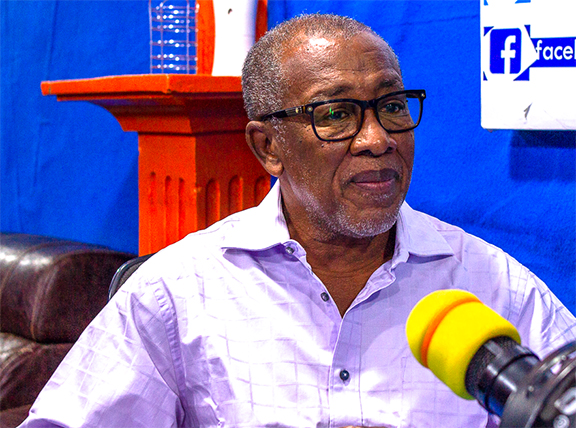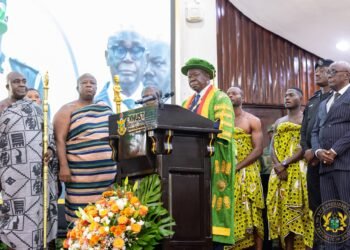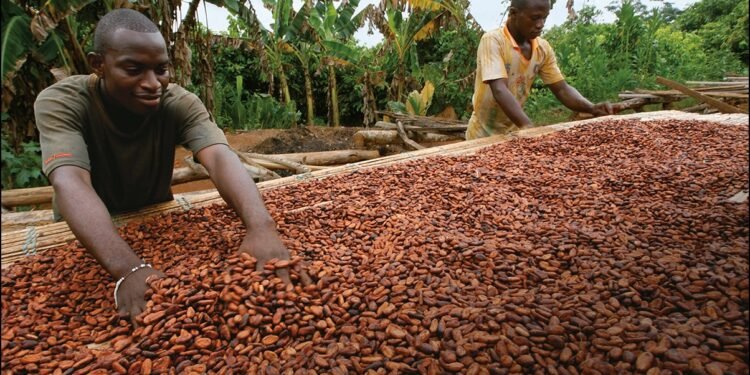Veteran educationist and founder of the Millar Institute of Transdisciplinary and Development Studies, Professor David Millar, has lauded what he sees as a renewed commitment by the current leadership under President John Dramani Mahama in tackling corruption in Ghana’s public sector.
Against the backdrop of decades-long concerns over pervasive corruption and the country’s struggle to curb fiscal indiscipline since the advent of the Fourth Republic, Prof. Millar described the current administration’s approach as signalling “a new dawn” in the fight against corruption.
Ghana’s history with corruption has often been punctuated by revelations in the Auditor General’s annual reports of massive leakages and mismanagement of public funds.
These reports, however, have frequently gone unheeded, with successive governments often accused of paying lip service to the anti-corruption agenda.
Critics of the National Democratic Congress (NDC) have argued that the party’s current efforts are no different from those of its predecessors. But Prof. Millar contended that the NDC government, led by President John Dramani Mahama, is showing signs of genuine commitment.
In an exclusive interview with Vaultz News, Prof. Millar pointed to recent developments under the Mahama administration that suggest a willingness to pursue corruption-related offenses, even when such cases involve political allies or appointees.
A notable instance he highlighted was the recent controversy surrounding the NDC’s Communications Officer, and the CEO of the Ghana Goldbod Sammy Gyamfi, who gave a dollar gift to a famous televangelist.
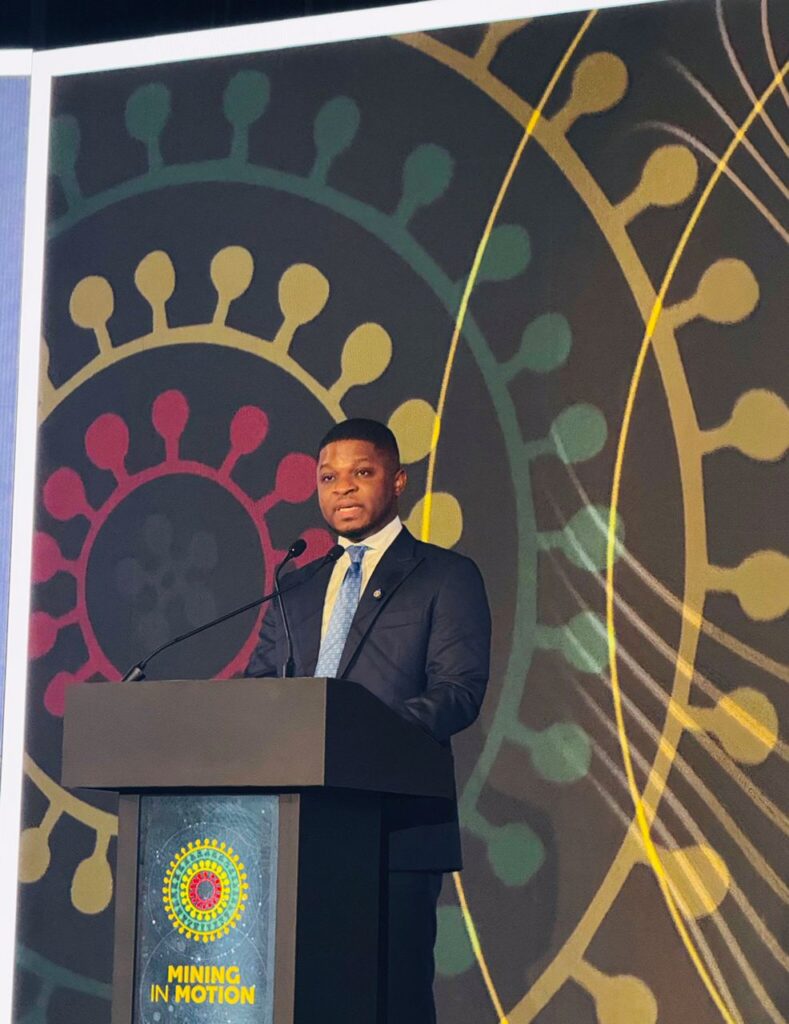
According to Professor Millar, the fact that the Presidency invited the Chief Executive Officer involved in the incident to the Jubilee House for questioning and later cautioned him is indicative of a new level of seriousness in dealing with corruption.
“I don’t think it will be the same forever. Let’s give this one a try. JM says he has four years to do what he wants to do; let’s not prejudge this with the others.
“Because this government appears to be very responsive when it comes to issues not only of corruption but other things too, so let’s wait and see how he will deliver in that fight”.
Founder of the Millar Institute of Transdisciplinary and Development Studies, Professor David Millar
He called on Ghanaians to adopt a more open-minded stance towards the current administration, urging citizens not to prejudge the government based on the failures of past regimes.
The Media’s Lapses
However, Prof. Millar was not without criticism of the broader anti-corruption ecosystem, particularly the media, which he believes has failed in its watchdog role.
He lamented what he described as the media’s inconsistent and fleeting attention to corruption scandals. According to him, after initial sensational reporting, many stories are abandoned without follow-up, effectively letting perpetrators off the hook.
“Politicians will not talk about fighting corruption if the media is not persistent; in any case it is you the press who let it of the hook, because you say you are the fourth estate of the realm and you are the ones who have the eyes and ears, so when you are reporting, we are hearing and we will be talking about it, but if you stop reporting how will we know?”
Founder of the Millar Institute of Transdisciplinary and Development Studies, Professor David Millar
Prof. Millar expressed frustration with the tendency of news outlets to move on from corruption cases once public interest wanes.
“It is you people who let the cases die. If you bring any now, and a few more stations pick it up, we are just listeners and watchers, we will go along with you. So, if there is any blame, I think the press is the one that is killing the thing.”
Founder of the Millar Institute of Transdisciplinary and Development Studies, Professor David Millar
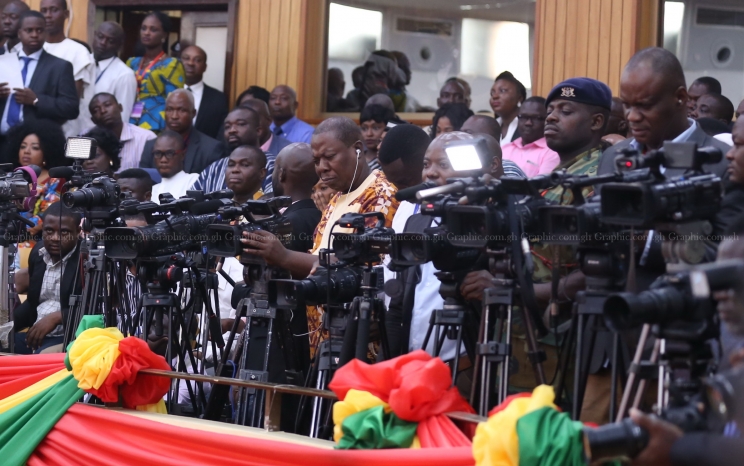
He urged the media to go beyond sensationalism and commit to sustained, impactful reportage on corruption.
“If the country is to go far in its fight against corruption, then the media must reconsider its reportage. Don’t just go for the sensation. Stay with the story until something meaningful happens.”
Founder of the Millar Institute of Transdisciplinary and Development Studies, Professor David Millar
Wontumi’s Arrest
In touching on recent political controversies, Prof. Millar also commented on the arrest of Bernard Antwi Boasiako, popularly known as Chairman Wontumi, the Ashanti Regional Chairman of the New Patriotic Party (NPP).
While he acknowledged the principle that the law must be upheld, he expressed reservations about the manner in which the situation was handled.
“I think the problem is the degree to which the incarceration is playing out, In principle, nearly everybody agrees that the law must take its course. But the drama behind it—well, everybody learns their lessons from one occasion.”
Founder of the Millar Institute of Transdisciplinary and Development Studies, Professor David Millar
He cautioned against politicising the arrest and noted that the minority’s attempts to shield Wontumi from legal consequences would not succeed if the state deemed prosecution necessary. “As for the action, it will happen anyway. There is no way they can stop that,” he asserted.
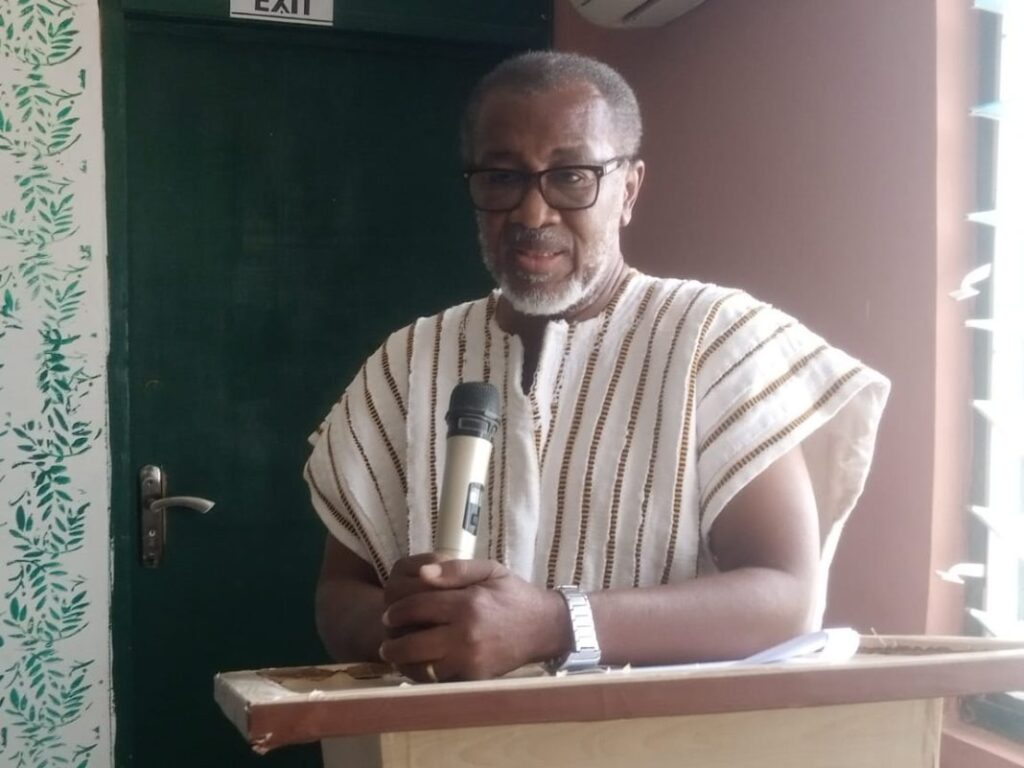
However, Prof. Millar also raised questions about the conduct of the Economic and Organised Crime Office (EOCO), suggesting that their approach in summoning Wontumi appeared disorganised. “The attitude of EOCO made it seem as though they were not ready before inviting him,” he said, implying a lack of preparedness that undermines the legitimacy of their work.
In his remarks, Prof. Millar painted a hopeful yet cautious picture of Ghana’s ongoing struggle with corruption. He believes that with genuine political will, consistent media engagement, and an empowered public, the country can begin to break the cycle of impunity and fiscal irresponsibility that has long plagued its governance.
READ ALSO: Cedi to Remain Stable Against Major Currencies- Finance Minister Assures Ghanaians

